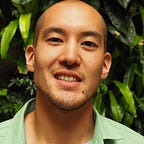10 Years Later: What 3.11 Taught Me
I sat in my friend’s dorm room, watching news flashes of Japan go up in flames.
I was emotionally connected to these images. I was raised in a Japanese household, grew up on anime and attended Japanese school every Saturday till the 10th grade — that all made me a proud Japanese-Canadian. The year before the earthquake and tsunami ravaged Japan, I went “back” for the first time in four years.
I visited Hiroshima and Nagasaki to learn more about my history, and a close friend in Fukushima invited me to speak about my Japanese-Canadian experience to his students. I came back to Canada with reinvigorated pride in who I was and where I came from. Less than a year later, Japan was going through its biggest crisis since the two atomic bombs dropped. Fukushima was rocked by the earthquake and became synonymous with “nuclear fallout”.
So while I sat there in the dorm room, inundated with these images, I felt compelled to act. Maybe it was my new-found patriotism or youthful energy. Four months later after 3.11, I packed my bags for Japan and spent six days/week for three months digging ditches that clogged up the highway drains — hauling dirt and debris pushed inland by the tsunami.
While sweating profusely under the sweltering Tohoku sun, I never felt so connected to others. My friends back in Toronto helped me prepare for this trip, my parents supported my decision and paid for the plane ticket, and volunteers around the world came to help.
I met U.S. veterans, corporate banksters who gave up their lucrative jobs, and a former gang member who was turning his life around. A ragtag group of us were all united under one mission: to alleviate the collective suffering Japan was going through. It sounds grandiose, but I really felt connected to a pivotal moment in Japanese history, even though I was just doing my small part.
The Japanese called this bond ‘kizuna’. ‘Kizuna’ was everywhere — in the streets, in the conversations with others and even in Tokyo. While digging, locals often showered us with snacks and beverages to say ‘thank you’. Most bowed and quickly drove off.
But there was a group of older ladies — we called them “The Highway Ladies’”— who came out with cold drinks during our afternoon breaks. One afternoon, they invited us into their homes and only during a debriefing session at the base, I later learned one of them had lost her son, swallowed eternally by the sea.
She never said one word about her son’s death, her pain masked by her smile and constant heaps of praise thrown at us. When I think of strength, I think back to that lady.
Ten years later, Tohoku is still rebuilding. People are still in temporary shelters. If there’s anything I learned from 3.11, it’s this: there’s a silver lining that comes from suffering — the collective effort to get through it can forge bonds stronger than ever before.
We’re all getting through an invisible tsunami today, with potentially lasting economic and mental health consequences. Many will never return to the same life pre-covid. But taking one small step towards alleviating suffering not only connects us to others, it may also inspire others to keep fighting too.
